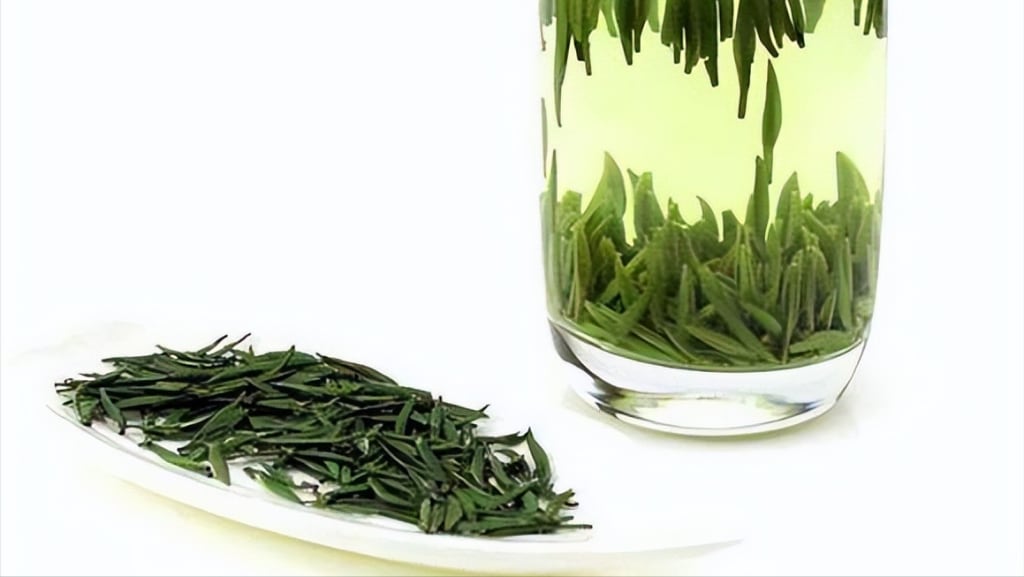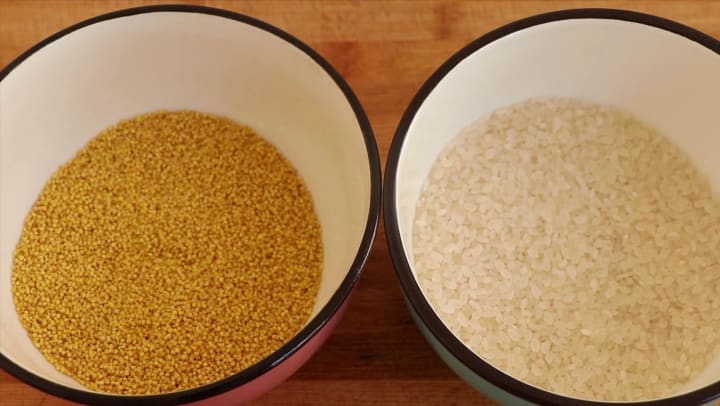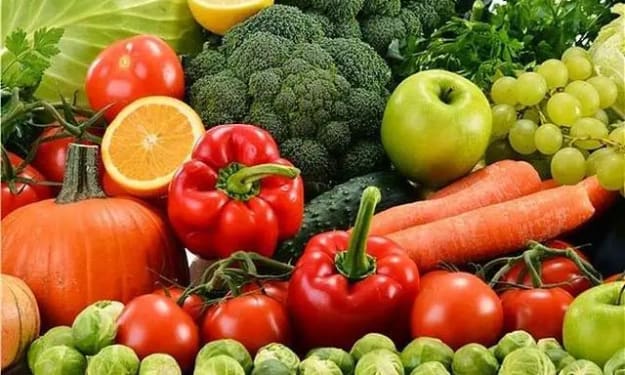
"Drink more selenium-rich tea, health to take home, you buy us this selenium-rich tea is right."
"Is it that useful?"
"Have you not heard? Selenium can prevent heart disease and can also deal with cancer!"
Today, Mr. Wang is in a scenic spot when suddenly called about the sale of tea, the two conversations, Mr. Wang is somewhat impressed and ready to start.
In the immediate "hand over money and hand over things", Mr. Wang's son appeared to stop him. "Selenium-rich tea? Not much effect, it is better to go home and eat more pork, fish, Dad you do not be cheated we go."
"Hey young man how to speak, where am I a liar? How much selenium you don't know, don't talk nonsense."
Now Mr. Wang's son completely stopped, ready to debate with the merchant: "I did not say selenium is useless, I'm talking about your tea containing selenium is not much use!"
Not long after, a large number of lively tourists have come around to see the two arguments, we are also very confused, what is this selenium? Can also prevent heart disease and anti-cancer? How to say useful for a while, and then say useless?
Today we will take you to know what is selenium. What exactly is the role?
Selenium, can prevent heart disease and can also deal with cancer.
Selenium is one of the essential trace elements, but the human body cannot synthesize selenium, and almost all natural organic selenium comes from cereals, vegetables, meat, eggs, milk, and other foods.
As early as 1973, a foreign scholar discovered that selenium is an important component of peroxidase.
Selenium exists in the human body mostly in the form of selenoprotein, which is an important active component of peroxidase. The role of peroxidase is mainly to decompose the oxides in the body, so that they can be transformed into the components required by the body, and participate in regulating the balance of the overall redox reaction in the cells, thus playing a role in protecting the cells.
In addition, some scholars have indicated that selenium can act synergistically with vitamin E on arteries and organs to improve the antioxidant capacity of organs, thus playing a good preventive role in atherosclerosis and organ aging.
Selenium also has a role in the prevention of cardiovascular diseases.
# There are currently about 330 million cardiovascular disease patients in China#, not the least of which are some patients with Keshan disease, also known as endemic cardiomyopathy, which has been proven to be a heart disease caused by a combination of selenium deficiency as well as viral infections.
Chronic selenium deficiency can impede cardiovascular blood flow, and a prolonged excessive selenium deficiency can cause symptoms such as cardiac systolic and diastolic failure. And the right amount of selenium can maintain the integrity of the blood vessel wall structure and prevent cardiovascular diseases.

Regarding the prevention of cardiovascular diseases by selenium, it may also be related to coenzyme Q.
Coenzyme Q is commonly found in the human body and is an activator of cellular respiration and cellular metabolism, which can have a good preventive effect on heart disease. Selenium is an important component of coenzyme Q and influences the activity of coenzyme Q, thus reducing the chances of heart disease.
In recent decades, the relationship between selenium and anti-cancer drugs has received increasing research and attention.
Two enzymes present in the human body, aryl hydroxylase, and hydrocarbon enzymes, can activate carcinogens and thus lead to cancer development, while selenium can reduce the activity of these two enzymes and thus inhibit the development of cancer.
In addition, in the early stage of cancer, selenium can control protein and nucleic acid metabolism to inhibit DNA synthesis of cancer cells, and also repair DNA to prevent cancer cells from metastasis and spreading, thus reducing the incidence of cancer.
Thus, it can be seen that selenium has a certain role in antioxidants, anti-aging, cardiovascular disease prevention, and anti-cancer.
However, the above research findings do not confirm that selenium can act directly on the human body through supplementation and play a role in the treatment of diseases, but only illustrate that the human body will increase the risk of disease if it is deficient in selenium.
Another point to note is that selenium not only causes many diseases if the level of selenium in the body is too low but also causes selenium toxicity causing damage to the body if the level is too high. Selenium toxicity can lead to hair and nail loss, as well as skin damage and neurological disorders.
This is mainly because, at low concentrations, the right amount of selenium plays a role in inhibiting peroxidation in the body, while higher concentrations of selenium will lead to promoting the occurrence of peroxidation, which has a toxic effect on the human body, so the supplementation of selenium can not be too much or too little.
The Chinese Nutrition Society has listed selenium as one of the essential daily dietary elements, and the recommended daily intake of selenium for adults is above 55 micrograms.
This intake can fully meet the needs of the body without consuming selenium-added drugs or foods, and only through reasonable daily dietary supplementation. On the contrary, drugs and foods rich in selenium may increase the risk of excessive intake of selenium.
To prevent cardiovascular disease and fight against cancer we can start with our diet and eat more of these selenium-rich foods.
Attention! Consumption of these 4 types of food can be supplemented with selenium
1、 bowl of cereal
The selenium content of cereals is not very high. The selenium content of rice, 100 grams only contains about 2.3 micrograms, flour contains about 5.4 micrograms of selenium per 100 grams, and millet contains 4.5 micrograms of selenium per 100 grams.
However, staple foods make up a large part of the daily diet, so cereal-based staples are one of the important sources of selenium.
According to the amount of selenium content of each staple food, it is recommended that you can discard a single staple food in your daily diet and try to choose a variety of staple foods to go with it. For example, noon rice can be replaced with half rice and half millet, not only to enrich the structure of staple foods but also to properly supplement more selenium.

2、Beans
The selenium content of bean foods is slightly higher compared to staple foods, but because the intake of beans does not reach the standard of staple foods, so we try to choose bean foods with high selenium content for dishes.
For example, safflower beans have 19 micrograms of selenium content per 100 grams, although you can not eat so much in a day, but you can also be added to the main food in moderation, made into mixed rice.
3、Fruits and vegetables
Fruits and vegetables are due to high water content, so the overall selenium content is significantly lower than beans and grains, commonly eaten apples and bananas have a selenium content of only about 1 microgram per 100 grams.
Therefore, the proper eating of fruits and vegetables in daily life to supplement fiber and vitamins can not reach the effect of selenium supplementation.
But this category has a special recommendation, that is, konjac powder.
Konjac semolina powder has a high selenium content, about 350 micrograms per 100 grams, while konjac is low in calories and high in satiety, so konjac semolina products are highly recommended for consumption, you can add konjac semolina powder in the production of bread, noodles, vermicelli, both to ensure intake and will not have a significantly strange taste.
However, in advance, it is not recommended that you directly consume konjac semolina powder more than 20g a day, easy to exceed the intake of selenium.
4、Animals
Animal foods are often found on the table as dishes in daily life.
Animal meat, with the highest selenium content in pork loin, 100 grams contains about 111 micrograms, with into the dish is a good choice. Among animal eggs, quail eggs are recommended, which also have 25 micrograms of selenium per 100 grams and can be used as a beneficial food for protein and selenium supplementation.
Aquatic animals, in general, have high selenium content 10 micrograms in 100 grams, shrimp skin, sea shrimp, Spanish mackerel, mackerel, etc. can be invited to the table and eaten daily.
Calculated according to the method of 250 grams of staple food, 50 grams of beans, 100 grams of fruits and vegetables, and 100 grams of animals, the national recommended daily selenium intake target of 55 micrograms or more can be easily reached. Therefore, selenium supplementation can be completely achieved through a reasonable diet to achieve normal intake and prevent cardiovascular diseases and cancer, etc.
As for processed selenium-containing foods, such as selenium tea and selenium rice, they do contain enough selenium, but only for people who have a single daily diet structure and cannot get enough selenium from the diet.
For example, some patients suffering from gastrointestinal diseases who can only eat liquid food may need extra supplementation of food containing selenium, normal people pay attention to a reasonable mix of meals, without spending high prices.
The preventive and resistance effect of selenium on heart disease and cancer is the subject of unified research in the world, and half of the puzzle about selenium has not been completely solved, so what can be done now is to ensure that the body is not deficient in selenium, as, for the future application of selenium in treatment, more experimental support is needed.
Some people who want to prevent heart disease through the intake of selenium can look forward to more research about selenium on the one hand, on the other hand, they can also start from these points below.
Tip: You can also do this to prevent heart disease
The first thing you can do to prevent heart disease is to lose a moderate amount of weight.
Obesity can cause the body's blood lipids to increase, thus increasing the probability of vascular atherosclerosis, triggering coronary heart disease. On the other hand, obesity will also increase the load on the heart, after strenuous exercise may appear poor blood circulation, insufficient oxygen supply, breathing difficulties, long-term impact on the function of the heart, and prone to heart disease.
Vitamin supplementation can also prevent heart disease.
A study shows that the human body in the metabolism will produce a harmful acid - homocysteine, the acid will lead to vascular cell damage and promote the formation of blood clots, very bad for the heart, and the probability of causing heart disease than cholesterol is about 3 times higher, is a major "natural enemy of the heart "It is a natural enemy of the heart.
But vitamin B, especially folic acid, can prevent elevated levels of homocysteine in the blood and reduce the probability of myocardial infarction. Therefore, to prevent heart disease, you can eat foods containing vitamin B and folic acid in moderation, such as meat - pork leg, animal liver - chicken liver, vegetables - shiitake mushrooms, etc.
What doctors say
Protecting the heart needs to start every day, just like we talk about selenium today, which can play a certain role in preventing heart disease in several ways.






Comments
There are no comments for this story
Be the first to respond and start the conversation.